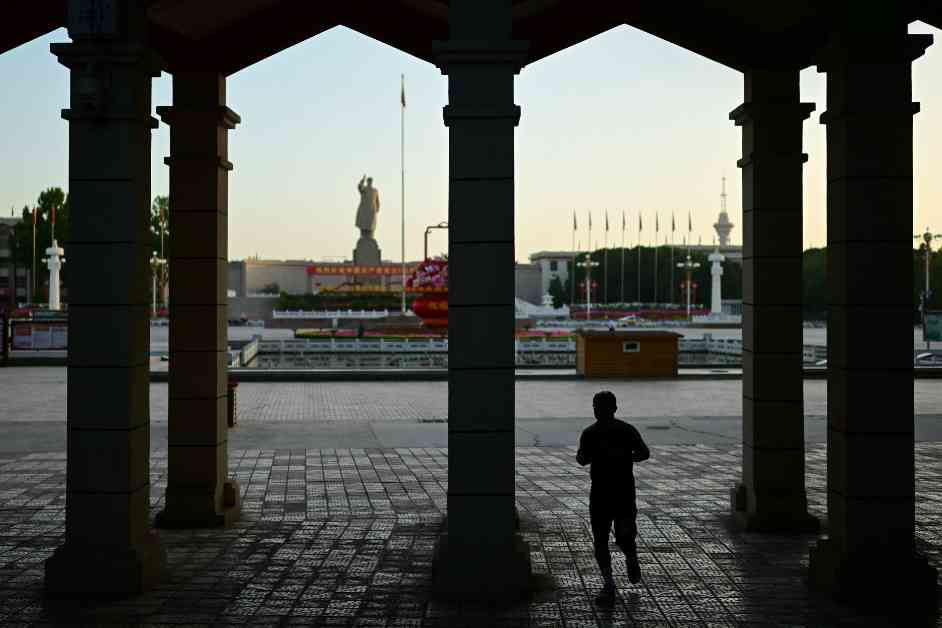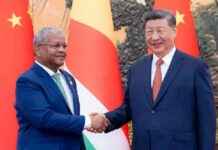Xinjiang Authorities Prosecuting Citizens With Retroactive Laws
Sholpan Amirkhan and her aunt were shocked when they saw her brother-in-law, Nurlan Pioner, being brought into the Jimunai County People’s Court in Xinjiang. He appeared frail and emitted a foul odor, a stark contrast to the vibrant and respected religious leader he once was in their community. Pioner, a molla who had dedicated his life to guiding his community through religious rituals and teachings, now sat paralyzed and trembling in the defendant’s cage, a shell of his former self after 14 months of detention.
Pioner, a state-appointed community leader and active member of the Jimunai County People’s Congress, was accused of leading members of the Kazakh community into extremism. Despite his previous role in promoting religious harmony and conducting important ceremonies like marriages and funerals, the court painted him as a criminal. In August 2018, he was sentenced to 17 years in prison on charges of disturbing social order, using extremism to undermine law enforcement, and illegal possession of items promoting extremism and terrorism.
The case of Nurlan Pioner sheds light on the harsh reality faced by many ethnic minorities in Xinjiang, where routine Islamic practices have been criminalized. Prosecutors and judges have reimagined past activities of Muslim communities as acts of extremism, retroactively prosecuting individuals for acts that were once accepted by the state. The verdict against Pioner is just one example of how citizens are being prosecuted for crimes committed before they were deemed illegal under new laws.
Since 2017, approximately a tenth of all adult Uyghurs and Kazakhs in Xinjiang have been sent to various forms of detention, marking the beginning of a widespread crackdown on ethnic minorities in the region. The number of prosecutions in Xinjiang skyrocketed in 2017, with authorities prosecuting over 216,000 individuals that year alone. This drastic increase in prosecutions reflects the government’s aggressive campaign to suppress dissent and control minority populations.
The role of the Xinjiang court system has evolved to align with the government’s objectives of eradicating extremism and maintaining social stability. Judges and prosecutors have worked closely with the Public Security Bureau to identify and prosecute individuals deemed to be part of “evil gangs” promoting extremist ideologies. The authorities have implemented aggressive tactics, including raiding homes and confiscating materials deemed to be illegal propaganda.
One of the key elements in prosecuting individuals like Pioner has been the retroactive application of laws and regulations. Activities that were once considered normal cultural or religious practices are now being used as evidence of extremism and criminal behavior. Books that were previously widely circulated and accepted within the community have been labeled as illegal, leading to the arrest and imprisonment of individuals in possession of such materials.
The crackdown on religious and cultural practices in Xinjiang has had a profound impact on the lives of Uyghurs and Kazakhs in the region. People like Pioner, who once played vital roles in their communities, are now being targeted and prosecuted for activities that were once considered routine. The fear and paranoia instilled by the government’s repressive tactics have forced individuals to abandon their traditions and beliefs out of fear of reprisal.
As the Xinjiang authorities continue to prosecute citizens using retroactive laws, the fabric of society in the region is being fundamentally altered. The once vibrant cultural and religious practices that defined the Uyghur and Kazakh communities are now seen as threats to the state. The persecution of individuals like Nurlan Pioner serves as a stark reminder of the harsh realities faced by ethnic minorities in Xinjiang and the lengths to which the authorities will go to maintain control.
Moving forward, it is essential to shed light on the injustices faced by individuals like Pioner and advocate for the protection of basic human rights and freedoms in Xinjiang. The international community must hold China accountable for its actions in the region and work towards ensuring that all individuals, regardless of their ethnicity or beliefs, are treated with dignity and respect. Only through collective action and solidarity can we hope to bring about positive change and justice for the people of Xinjiang.
With the plight of individuals like Nurlan Pioner serving as a stark reminder of the injustices faced by ethnic minorities in Xinjiang, it is crucial to continue shining a light on the human rights abuses occurring in the region. By raising awareness and advocating for the protection of basic rights and freedoms for all individuals, we can work towards creating a more just and equitable society for everyone in Xinjiang and beyond.









![Indie music fans gather at l’Antipode for [Face B] Kool Things soirée on Saturday night news-15112024-105933](https://shanghainewstv.com/wp-content/uploads/2024/11/news-15112024-105933-218x150.jpg)







